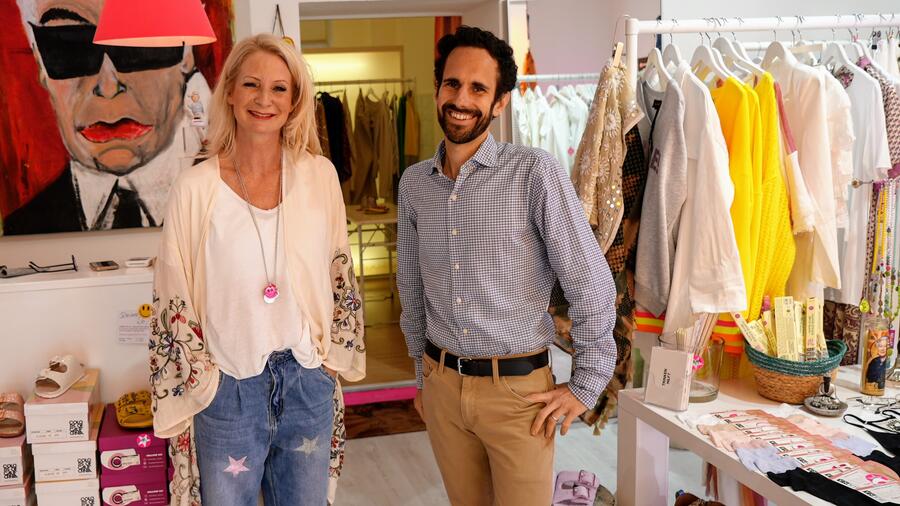Germany: Digitization Allergy, Corona, Supply Bottlenecks – the Future of Retail Relies on Innovation
July 8, 2022 | By Faire

Independent, mid-sized retailers in Germany are facing a number of challenges that are hampering their success: high store rents, competitive pressure from large retail chains, and the pandemic. At the same time, there is a big question about the future: How can technology help? Four out of ten retailers have not yet adopted digital solutions because they currently see no need or are overwhelmed with the related tasks. However, several crises are spurring many to reconsider, particularly in wholesale discovery: online channels are becoming more relevant.
In July 2022, German market research institute IFH Cologne conducted a study of German retailers on behalf of Faire. In the survey, 213 independent retailers from various retail verticals and a maximum annual revenue of 1.5 million euros expressed their views on the topic of the digitization of German retail.
Current challenges facing the retail sector
The much-cited Ladensterben, or the death of stores, in German city centers is evident in increased vacancies. Half of the businesses surveyed whose stores are in urban locations say the Coronavirus pandemic has had a negative impact on their businesses. No one went shopping in the lockdown, and supply chain shortages diminished the assortment stores could offer. Thirty-six percent of respondents normally go to wholesale and order shows for information on new trends and products. However, these were canceled during the pandemic.
“Traditionally, we present our products to stationary retailers at international trade fairs, but these events have been canceled repeatedly over the past two years,” says Faire customer Antje Risau, founder of WeeDo Funwear, describing the problem from a manufacturer’s perspective. “This was a huge problem that we were able to solve with a digital wholesale platform like Faire. There, small retailers and small brands also met in lockdown. Online options can save small brick-and-mortar brands and stores.”
How digital is the German retail sector?
Put simply, there is a need to catch up digitally. There are individual areas where brick-and-mortar retailers see potential in terms of digitization, for example in wholesale discovery and purchasing. Four out of ten retailers have not yet looked at digital solutions, partly because they do not currently see a need for digitization or are overwhelmed by the tasks involved. 57 percent of the retailers surveyed do not operate an online store. Smaller retailers in particular cite a lack of time as the reason why they have not yet established an additional online channel.
With tailored financial and logistical terms, such as free returns and a 60-day net payment target, Faire offers small merchants the resources typically only available to large retailers. With its data-driven approach, Faire guides merchants in selecting items that fit their needs. On the brand side of the marketplace, Faire customers benefit from powerful sales, marketing, and analysis tools that simplify their business.
Expert Prof. Dr. Heinemann takes a critical view of partial non-digitization
“Although the current challenges in stationary retail are enormous, four out of ten retailers still haven’t addressed the issue of digitization,” says German e-commerce expert, Geritt Heinemann. “The progressive retailers, however, have seized the opportunity and are relying above all on the advantages of digitization on the procurement side in purchasing and logistics.”
Online wholesale is becoming increasingly relevant as a purchasing channel
Overall, digitization is more widespread among larger retailers – especially in purchasing and internal processes. The global crises are driving a rethink, particularly in the procurement of goods: online wholesaling is becoming more relevant as a place to buy, and retailers are looking for digital alternatives to trade shows and lengthy searches in the vastness of the Internet. Numerous Faire tools facilitate the ordering process and tie in with popular and learned social media mechanisms.
“I’ve clicked on ‘You might also like this’ quite often, it works like Instagram and Pinterest,” says Ramona Krämer, owner of the Hamburg-based Krämerladen. “I love that I can shop worldwide, right now I order a lot from America.”
Sixty-four percent of respondents said they were open to alternative sourcing options such as online wholesaling. Despite a comparatively lower level of digitization, smaller retailers are more likely to seek out new sourcing options. One in five retailers obtains information from online wholesalers, and 80 percent have had a positive experience. For 68 percent, the use of online wholesale platforms had a positive effect during the pandemic. During the current crises, larger retailers in particular increasingly want support from wholesalers, especially with regard to conditions (35 percent) and product selection (15 percent).
Conclusion and outlook
“When a retailer joins Faire, they join a global network that collectively can compete with retail giants,” says Max Rhodes. “The study results reflect what we see every day. There is a need for access to new tools, data, and partners that can help independent Retailers grow their business, even when faced with really challenging circumstances. We make it simple for them to adopt tools that will make a big difference in their business.”
The experts at Faire recognized this at the time of its founding: Retail is becoming more and more omnichannel. There will be fewer and fewer retailers who are only online or only stationary. Everyone will offer a bit of both via websites, social media, or marketplaces. With the right tools, independent retailers can reach their customers more easily. Digital commerce and brick-and-mortar retail are not contradictory, but ideal partners in the democratization and digitization of retail.



